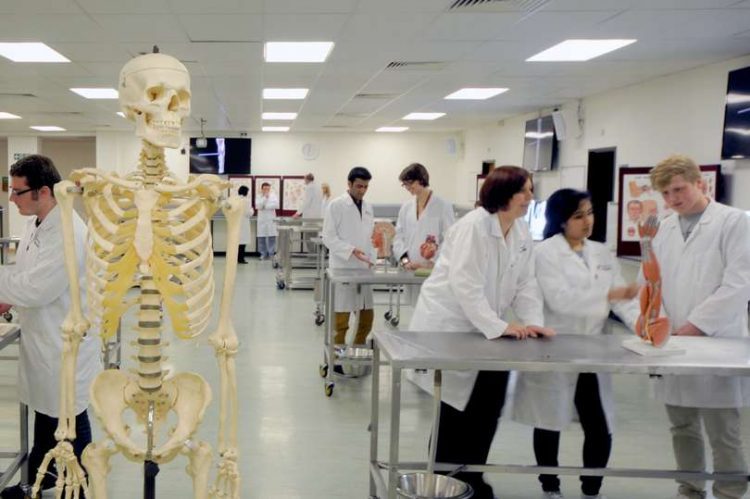People are being asked to consider donating their bodies to the University of Leicester after they pass away, so that their medical students can benefit.
The university’s mortuary can store up to 64 bodies for educational purposes and medical students could benefit from them on their paths to becoming future doctors.

“It’s definitely one of the advantages to studying here because death and dealing with it is part of the job they’re going into,” said Michelle Lawrence, Body Donation Programme Manager at the University of Leicester.
“Equally, knowing how the body works and being able to physically see this in front of you is better than any simulated model you can get.”
Donors give written, witnessed living consent and are strongly recommended to advise their families of their intentions verbally and in writing when possible. In addition, donors are discouraged from writing their wishes solely in their Wills without having completed a consent form.
The Human Tissue Authority regulates the use of bodies donated for medical education.
“Once the donor passes, it’s up to their next of kin to get in touch with us so that, if we can accept, we can make arrangements to bring them into our care,” explained Ms Lawrence.
“It may sound insensitive but we have a time frame of eight days to collect a donor (if we can accept) to ensure the condition of their body is ideal for our students to use and for our embalming process to begin. We liaise with our own subcontracted funeral director to ensure this happens.
“Donors may be with us for up to three years for teaching,” she added. “Their identity won’t ever be known by students but details such as their occupation and age are revealed, along with their causes of death, which helps students to empathise and learn.
“It’s very important to humanise our donors as much as we can. Students have to remember that this is someone’s loved one and show them the respect and dignity that goes along with that. It’s all part of developing their empathy skills and we know that these are vital to the caring profession.”
Cremation services for donors are held at Bretby Crematorium in Burton-on-Trent.
Services are individual and always attended by Michelle or one of her colleagues from the Medical School.
“It’s important for us to be there because we want to show our gratitude to the donor and their family,” said Ms Lawrence.
“I’ve attended many beautiful services. However, some families hold their own funeral service at a place and time of their own choosing – it’s entirely their decision to make.”
In addition to this, the Medical School holds a memorial service on campus every three years for donors at the university as a way of thanks – often these are attended by medical students who pay their respects.
Although donors’ consent when they are living, there may be reasons why they cannot be accepted after death. For example, any donor that requires a post mortem or has had an infectious disease, can’t be accepted.
Out of around 45 medical schools across the UK, Leicester is one of only 18 which accepts body donations.
Anyone interested in finding out more about the Body Donation Programme and how it works can find more information online or call 0116 252 3082 for an informal chat.



